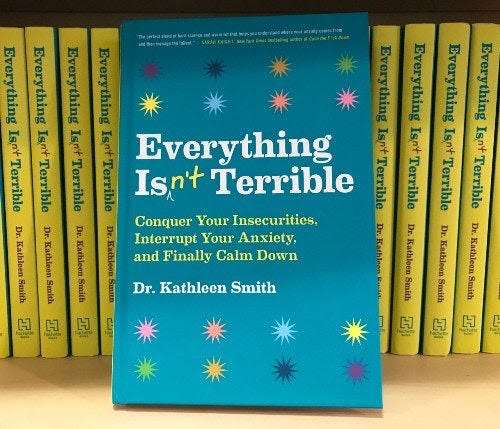Energy is a precious resource in pandemic life. Most people are worn down, worried, and struggling to do the bare minimum. Yet somehow I still find myself using this scant energy to try and manage the thoughts, emotions, and behaviors of others. This is not surprising, considering it’s what humans do when we get stirred up.
Recently I was having a conversation with a therapy client who poked fun at his very human desire to have everyone like him. “If I pick a restaurant,” he admitted (referring to pre-pandemic times), “Then I will ask people five times whether they like the food.”
“What a wonderful life goal that would be,” I said. “To be able to enjoy a meal even if other people weren’t completely happy with it. And to let people be in charge of telling you if they didn’t like something.”
We both laughed at this idea, but I think it reflects the challenge of being in relationship with others. We want people to like what we like, think what we think, and do what we do, so we can avoid any discomfort or rejection.
I’ve decided that how much I let people be in charge of themselves is going to be one of the ways I evaluate my functioning this year. Because the more connected you are to someone, the easier it is to treat them like an extension of yourself. When we’re stressed, it’s easy to back away, or to overstep and overfunction. But to be in contact, and to treat that person like a capable individual. . .well that’s a true test of maturity.
This year I want to let people be in charge of:
Letting me know if I’m being annoying.
Asking me if they want advice.
Saying “yes” or “no” to an idea I have.
Communicating their thinking.
Telling me they need to leave/get off the phone.
Figuring out how to be “healthy.”
Changing the subject if I’m boring them.
Knowing when to take a break.
Saying “no” if they can’t take on a task.
Choosing their own goals.
Telling me if they’re upset with me.
Completing a task, even if I can do it more efficiently.
Remembering appointments, birthdays, etc.
Deciding how to structure their day.
Deciding what’s “safe” for them in a pandemic.
Deciding what books they read or TV shows they watch. (so hard!)
Navigating to a new location.
Staying in touch with other family members.
Managing their anxiety.
This doesn’t mean that I can’t help people in rough times. It simply means that I’m trying not to shift into automatic overfunctioning as a way of managing my own distress.
My husband is so much better at this than I am. A few years ago I began to notice that he never told me if he thought I was staying up too late. He’d simply go upstairs to bed and let me decide when I needed to sleep. But if I felt I was staying up too late, I’d say, “We need to go to sleep earlier. We’re going to regret this.”
It’s so useful to observe when that “We-ing” creeps into your language and behavior. When you think that others need to exercise the way you do or take the same route to the grocery store. Or that everybody needs to be happy with the restaurant in order for you to have a good time, or remember that Dad’s birthday is on Sunday.
People might calm down when we take over, but they never become more capable. So this week, consider thinking about how functioning for others has kept you from learning how to manage your anxiety in other ways, and kept others from learning to be in charge of themselves.
There is no better gift than having a friend or family member who thinks that you’re absolutely going to figure it out and is willing to walk with you while you do it.
Some additional questions:
When do I direct others in order to calm myself down?
When do I treat others as an extension of myself?
What are upcoming opportunities for me to sit with the discomfort of letting people direct themselves?
News from Kathleen
Want to read more of my writing? I’ve started writing a weekly essay for Medium’s Forge Magazine. Last week I wrote about how we assume everyone’s mad at us when we’re anxious.
Watch my December interview about anxiety, my book, and pandemic stress with the ALSO festival in the UK.
Buy my book Everything Isn't Terrible from Amazon, Barnes and Noble, Indiebound, or anywhere you buy books! Please consider supporting your local bookstore.
Get a free anxiety journal - Calming Down & Growing Up: A 30 Day Anxiety Journal includes thirty daily prompts to help you reflect on and respond to your anxious behaviors. To receive a copy, submit a copy of your receipt for my book at the Hachette page. Or you can email me.
Check out my website for past newsletters about anxiety and relationships. Follow me on Twitter, Facebook, or Instagram, or email me if you have questions about my therapy practice in Washington, DC or want me to speak to your group. Visit the Bowen Center’s website to learn more about Bowen theory, as well their conferences and training programs.






Oh wow, this article and ALL the links are spot on for me. I wish I’d known this when I was younger. I have a lot of anxiety but I haven’t identified all the ways it plays out. I think I have lost a lot of friendships over the years by deciding people were mad with me and not being confident enough to fix things. Those people probably just thought I ghosted them 😢